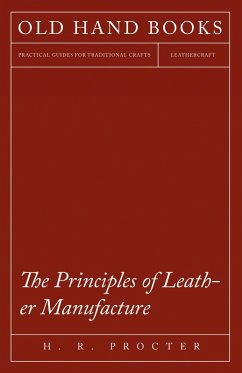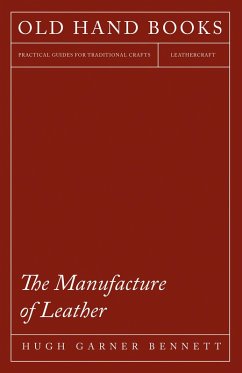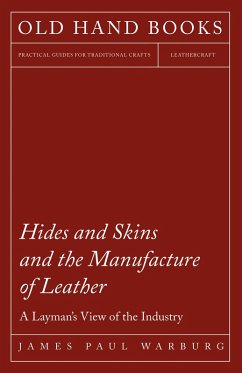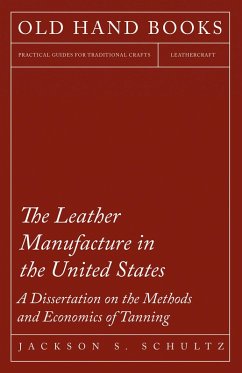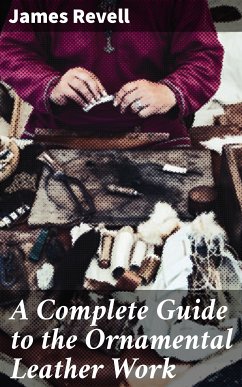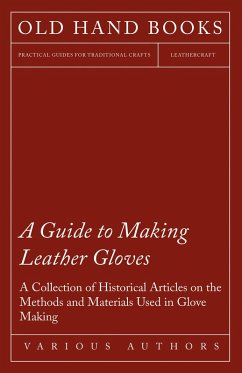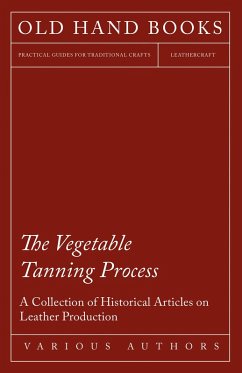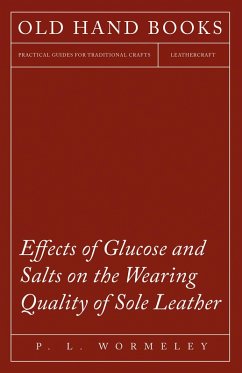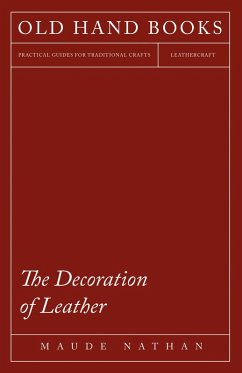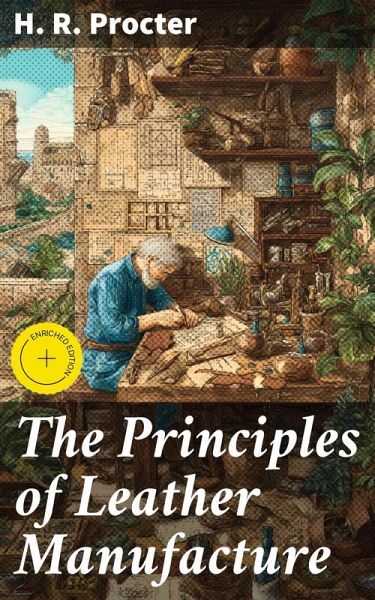
The Principles of Leather Manufacture (eBook, ePUB)
Enriched edition. Mastering Leather Production: Techniques and Processes Unveiled
Kommentar: Mercer, Valerie / Redaktion: Good Press
Versandkostenfrei!
Sofort per Download lieferbar
2,49 €
inkl. MwSt.
Weitere Ausgaben:

PAYBACK Punkte
0 °P sammeln!
H. R. Procter's "The Principles of Leather Manufacture" stands as a comprehensive exploration of both the scientific and artisanal aspects of leather production. Procter adeptly weaves together empirical research and practical insights, illustrating the complexities of leather chemistry and processing while also highlighting historical contexts that shaped the industry. The book's analytical style provides an academic yet accessible examination of tanning methods, dyeing processes, and the ecological implications of leather production, making it a vital resource for scholars and industry profe...
H. R. Procter's "The Principles of Leather Manufacture" stands as a comprehensive exploration of both the scientific and artisanal aspects of leather production. Procter adeptly weaves together empirical research and practical insights, illustrating the complexities of leather chemistry and processing while also highlighting historical contexts that shaped the industry. The book's analytical style provides an academic yet accessible examination of tanning methods, dyeing processes, and the ecological implications of leather production, making it a vital resource for scholars and industry professionals alike. H. R. Procter, a noted chemist and leather technologist, possesses a deep-rooted passion for sustainable manufacturing practices, which shines throughout his work. His extensive experience in leather production, coupled with an academic background in chemical engineering, equips him with a unique perspective that bridges theoretical knowledge and real-world application. Procter's commitment to advancing the leather industry through sustainable methods is profoundly evident in his meticulous examination of the processes and environmental considerations surrounding leather manufacture. This book is essential for anyone interested in the intricacies of leather production, whether they are scholars, students, or industry practitioners. Procter's insights not only expand the reader's understanding of leather technology but also inspire a thoughtful dialogue around sustainable practices within the field. In this enriched edition, we have carefully created added value for your reading experience: - Hand-picked Memorable Quotes shine a spotlight on moments of literary brilliance. - Interactive footnotes clarify unusual references, historical allusions, and archaic phrases for an effortless, more informed read.
Dieser Download kann aus rechtlichen Gründen nur mit Rechnungsadresse in A, B, BG, CY, CZ, D, DK, EW, E, FIN, F, GR, H, IRL, I, LT, L, LR, M, NL, PL, P, R, S, SLO, SK ausgeliefert werden.




